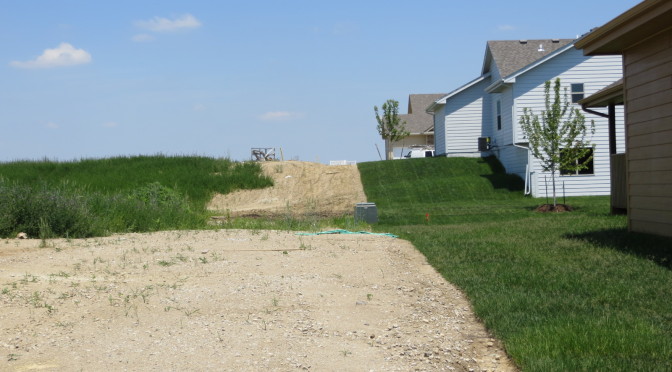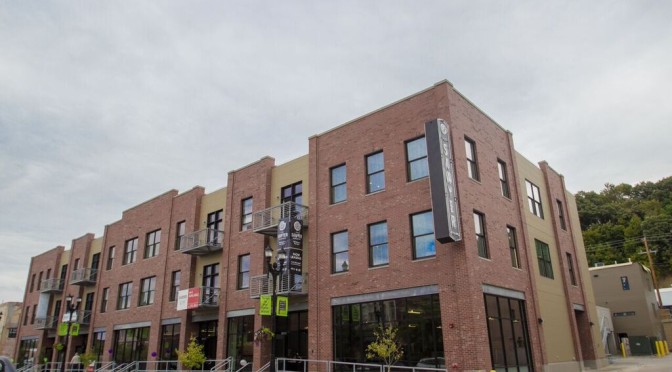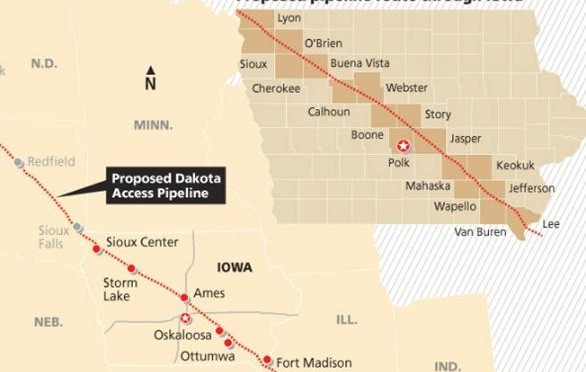
**UPDATE July 19, 2016
The Bakken Pipeline Resistance Coalition, which 1000 Friends of Iowa is a member, is looking for people to “adopt” a section of the pipeline route to watch DAPL’s construction and be the eyes and ears for justice.
To sign up to be a Pipeline monitor, just follow this link: Pipeline Monitors
Because it is crucial to protect our waters and support landowners who are trying to protect their land, we want to create a team of people along the pipeline route who can monitor their section for violations of the law.
For those who are willing to help monitor a section of the pipeline, you will:
- Participate in a training call
- Receive a short guidebook to the rules for either Iowa or South Dakota with all the information you need to do the monitoring
- Monitor your segment of the pipeline when construction begins
- Notify authorities if DAPL violates the law
- Notify the Resistance Coalition with regular updates by posting pictures, videos, and written notes on a Facebook page
- Work with the team to take action, especially around water crossings and on property owned by landowners who have resisted Dakota Access’ efforts to condemn their land.
We want to create a team of people across Iowa and South Dakota that can help defend our land and water.
If you’re willing to be a pipeline monitor, follow the link below and fill in your contact information. We’ll send you the call-in information for the training call and handbook.
To sign up as a monitor, follow this link: Pipeline Monitors
**UPDATE April 12, 2016
The only thing preventing Dakota Access from beginning construction on the Bakken Pipeline is the Army Corps of Engineers permit.
With your help, we can make sure the Army Corps of Engineers denies the permit.
Take two simple actions!
Currently the Army Corps of Engineers is only evaluating the project in a piecemeal fashion, rather than looking at the entire project.
This hazardous and unjust pipeline cannot be evaluated piece by piece. It is impossible for the Army Corps to grasp the true consequence and nature of this toxic project if they look at it through a narrowed lens.
Stay tuned for next steps.
Stopping the Bakken Pipeline
“Usually, terrible things that are done with the excuse that progress requires them are not really progress at all, but just terrible things.” Russell Baker
Join us Wednesday, December 16 for the Iowa DNR’s public hearing on the proposed Bakken Pipeline.
Dakota Access, the company seeking approval to build the Bakken Pipeline, must obtain a permit from Iowa Department of Natural Resources to build its pipeline across Iowa’s public lands.
As part of its consideration of this permit, the DNR is holding a public hearing this Wednesday, Dec. 16, in Des Moines, in the auditorium of the Wallace State Office Building, 502 E. Ninth St., in Des Moines, from 5:00 to 7:00 p.m.
That means we need a lot of you there to make sure the Iowa DNR hears us load and clear – “NO BAKKEN PIPELINE IN IOWA!”
Talking points include:
- The Threat to Iowa’s Soil and water. The proposed Bakken pipeline would represent an on going threat to Iowa’s precious natural resources, as countless crude oil pipeline accidents have proven. Just this January, the Bridger Pipeline poured between 40,000 and 50,000 gallons of Bakken crude into the pristine Yellowstone River. In Iowa, the Bakken pipeline would run beneath virtually every major waterway in the state, including the Big Sioux, Des Moines, and Mississppi rivers.
- The Threat to Iowa’s Economy. Current Iowa law would require Dakota access to provide a surety bond of just $250,000 to cover potential damages. In reality, that is just a drop in the bucket for actual clean up costs and would leave Iowa tax payers holding the bill. Cleanup costs for just one spill, that pumped one million gallons of crude oil into the Kalamazoo River in Michigan, have already cost over one BILLION dollars. And there is more clean up still to do. Energy Transfer Partners, the parent company of Dakota Access, wrote, “We may incur substantial environmental costs and liabilities because of the underlying risk inherent to our operations.”
- The Assault on Landowner Rights Through Eminent Domain Abuse. Dakota Access has formally asked the three-member Iowa Utilities Board (IUB) to grant the company the power of eminent domain, which would give the company the power to force Iowa landowners to provide easements against their will. This would be an egregious abuse of eminent domain, which, by law, only can be granted when there is significant “public convenience and necessity.” However, all three members of the IUB have been appointed by Governor Branstad, whose re-election campaign received support from former Texas governor Rick Perry, now an Energy Transfer Partners’ board member.
- The Threat to the World’s Climate. Every established scientific organization in the world has affirmed that the earth’s climate is rapidly changing and that human use of fossil fuels is the primary cause. According the former NASA climatologist, James Hansen, who was the first to address Congress on climate change nearly 30 years ago, 80% of fossil fuel reserves already discovered must remain in the ground if we are to avoid cataclysmic climate change.The Bakken pipeline would do just the opposite, facilitating the daily extraction of an additional 570,000 barrels of climate changing crude oil.
Let us know you’re coming! Please RSVP by clicking here.
—————————————————————————
Sample Talking Points for the IUB hearing Nov 12, 2015:
The following basic talking points are here for your reference – but do share you story and thoughts regarding the proposed Bakken Pipeline in any way you see fit!
Eminent Domain and the Pipeline
- Dakota Access wants to use eminent domain to force land owners to allow the pipeline to be built there.
- No private, for profit corporation should have the ability to use eminent domain to take property from the rightful owners for their own personal gain, and for the sake of profits.
- The Bakken pipeline has no public benefit for the state of Iowa. The oil and the profits will go out of state.
The effects on agriculture land have not been thoroughly investigated:
- Iowa farmland and recreation areas will be damaged with the pipeline’s construction and when the pipeline leaks.
- The oil flowing through the pipeline will generate heat that will affect freeze-thaw cycles, soil microbes, wildlife, and plants.
- According to Dr. Tom Fenton from ISU, soil compaction may reduce yields for many years.
- The Agriculture mitigation plan does not adequately protect and restore the 3 layers of soil – topsoil, subsoil, and parent material. Mixing the layers will reduce soil fertility.
The pipeline provides little economic benefit to Iowa and to Iowans:
- According to ISU economist Dave Swenson, this project would create far fewer jobs are expected than Dakota Access is promoting – less than 12 permanent full-time jobs.
- There is no guarantee that most of the jobs will be going to Iowans.
- We’re not against jobs. Jobs should move us into the 21st century and away from oil.
- There is no guarantee that this oil will be used in the United States since Obama lifted the ban on exporting crude oil.
- This is not a question of pipe versus rail. All business predictions suggest the industry will continue to transport oil through both pipe AND rail in order to quickly move their products.
Pipelines leak:
- The state’s indemnity fund for cleaning up a spill is only $250,000 – barely enough to clean up the most minor spill. Recent oil spills have cost far more in clean-up: $70 million (2013 Mayflower, AL), $1.2 billion (2010 Kalamazoo, MI)
- This isn’t about bad welding or poor workmanship. It is about a corrosive, volatile substance that can destroy acres of farmland, waterways and wildlife habitat when it leaks.
- Oil and water do not mix – creating dangers to wildlife, recreation areas, and drinking water.
This pipeline will exacerbate climate change:
- We already have the technology we need to invest in wind & solar, moving beyond Big Oil
- We should invest in renewable energy–creating jobs without the environmental risk to future generations
The IUB needs to require Dakota Access to perform an environmental impact study:
- Dakota Access hasn’t done adequate environmental studies and is not required to do so.
- The IUB has denied requests to have an environmental impact statement prepared. Dakota Access needs to be forced to do that study before they are given a permit.
- It is doubtful that construction crews will be able to identify and detect threatened and endangered species and not destroy them. That is why studies need to be done.
- It is doubtful that construction crews will be able to identify and detect archaeological artifacts and not destroy them. That is why studies need to be done.
- Most of the major rivers in Iowa will be crossed including the Missouri, Mississippi, North Raccoon, South Skunk; additionally, the Jordan Aquifer would be crossed, the water source for 300,000 Iowans.
- The IUB is counting on DNR to take into consideration the risks to the natural areas. However DNR is only looking at sovereign lands – 3 rivers and 1 wildlife area. The IUB needs to ensure that lands not evaluated by the DNR are examined.
- The IUB is counting on Army Corps to evaluate impacts on the waterways of the state. However the Corps is only looking at 17 isolated sites. The IUB should mandate impacts to waterways are evaluated.
- The IUB can’t rely on the DNR, Corps, Archaeologists to deal with environmental impacts because they have limited jurisdiction. The IUB needs to step up to the plate and require an environmental impact study where the other agencies do not have jurisdiction.
More About the Pipeline
A Texas company is proposing a 343-mile underground pipeline to cut diagonally across 17 Iowa counties on its path from North Dakota to Illinois. Dallas-based Energy Transfer Partners has proposed the pipeline will span four states for a total length of 1,134 miles carrying 570,000 barrels of crude oil each day from the Bakken oil fields in North Dakota to Patoka, IL where the crude will be redistributed across the U.S.
Energy Transfer Partners has asked the Iowa Utilities Board (IUB) for permission to build the underground pipeline in Iowa. Board approval would give the company access to eminent domain powers which would force landowners to sell their property if a sale agreement is not reached. A group opposing the project asked Governor Branstad to block the proposal; a request the Governor declined.
Economic development projects should be analyzed on what we have to lose in the long run as well as short-term, one time gains. One has to ask, who stands to benefit most from this pipeline? Not Iowans.
The Bakken Pipeline Resistance Coalition’s site for a wealth of resources on the issue. The coalition has also set up Facebook and Twitter accounts to keep the public informed of the very latest.








 lopment Awards
lopment Awards